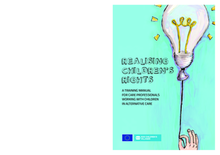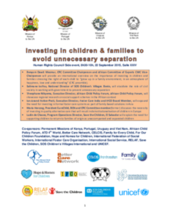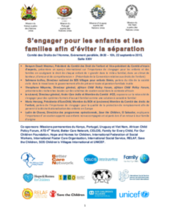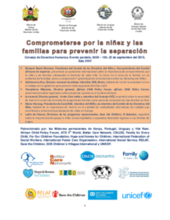Displaying 1741 - 1750 of 2223
This study from Singapore examined the association of two factors — children's strengths and placement type, with outcomes at two time-points during out-of-home care.
The two-day course outlined in these pages is designed to familiarise groups of care professionals with the international standards and principles surrounding children’s rights – and above all, to relate this to the daily experience and challenges arising in the field of alternative care.
The two-day course outlined in these pages is designed to familiarise groups of care professionals with the international standards and principles surrounding children’s rights – and above all, to relate this to the daily experience and challenges arising in the field of alternative care.
In this study 59 children between 10 and 18 years placed in long term foster care in the Netherlands completed standardized questionnaires on the relationship with their parents respectively foster parents and their wellbeing.
This study from Lumos provides an analysis of a survey administered to temporary foster carers in June 2015 in seven regions of the Czech Republic to address negative perceptions of foster carers and to determine whether public criticisms were founded.
This study employed a cluster analysis to identify subpopulations in a large, national sample of 17-year-old youth in the USA based on the following indicators: educational attainment, connection to a supportive adult, adolescent parenthood, homelessness, substance abuse referral and incarceration.
This Human Rights Council Side event included presentations on family separation in the African, Asian, European, and Latin American contexts.
This Human Rights Council Side event included presentations on family separation in the African, Asian, European, and Latin American contexts.
Este evento paralelo del Consejo de Derechos Humanos incluyó presentaciones en separación familiar en los contextos africanos, asiáticos, europeos, y latinoamericanos.
This article is an attempt to analyse and describe the process of change in child substitute care that has taken place since the re-independence of Estonia in 1991.






